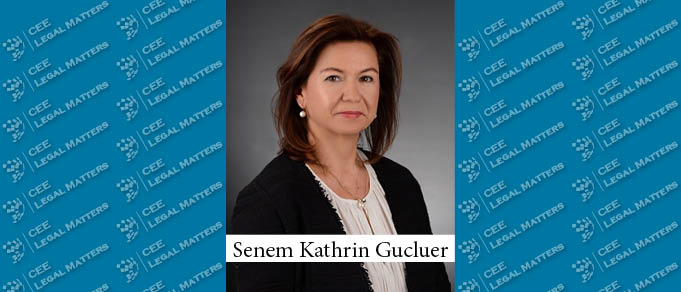The Turkish market finds itself in demand, with European companies relocating their production facilities there, and the country gradually switching to green energy, according to GEMS Legal Schindhelm Partner Senem Kathrin Gucluer.
"Turkey has a very high inflation rate – much higher compared to other European countries," Gucluer says. "Similarly to Europe, we also have high prices, affecting businesses and the populace." As for the transactions, Gucluer highlights a few active sectors. "Recently, a quite large deal was announced – the Swarowski group made a big investment in Turkey," she says. "Additionally, the Turkish automotive sector remains quite strong, as we are manufacturing and supplying European markets with automobile parts."
Gucluer notes that tourism has always been a big part of the Turkish economy, and this remains true nowadays, as tourists bring in foreign currency. "Since the war, many Ukrainian and Russian citizens have arrived, and areas around the Mediterranean Sea remain particularly attractive to them," she points out. According to Gucluer, "the newcomers are buying significant amounts of real estate, in particular, because Turkey is not a part of the EU community and did not join in the sanctions against Russia. However, the Turkish banks are still very careful," so that needs to be taken into account, she says.
Gucluer also highlights some positive developments. "Since the COVID-19 pandemic and then the Russian invasion of Ukraine, the demand for the Turkish market has increased," she notes. "European companies, some of them specialized in chemical and special system production, are now establishing production facilities in Turkey. This was also partly influenced by inflation in Turkey, as investors who hold foreign currencies find doing business here financially profitable also in terms of the low-cost labor force."
Gucluer adds that the government is supporting such investments. "To attract foreign investors and currency, the government also adopted special incentives," she says. "These incentives are primarily related to taxes – if companies bring foreign currency to Turkey under certain conditions, corporate tax can be decreased by 75%."
"Yet another important trend in Turkey is switching to green energy," Gucluer notes. "There is an increase in wind and solar energy projects, and Turkey is an interesting country for hydro energy, as it has a significant surface water potential." On a not completely unrelated note, she says "another hotly discussed topic is the export of cement and concrete, since their production requires a lot of energy and produces a considerable amount of carbon dioxide."






















